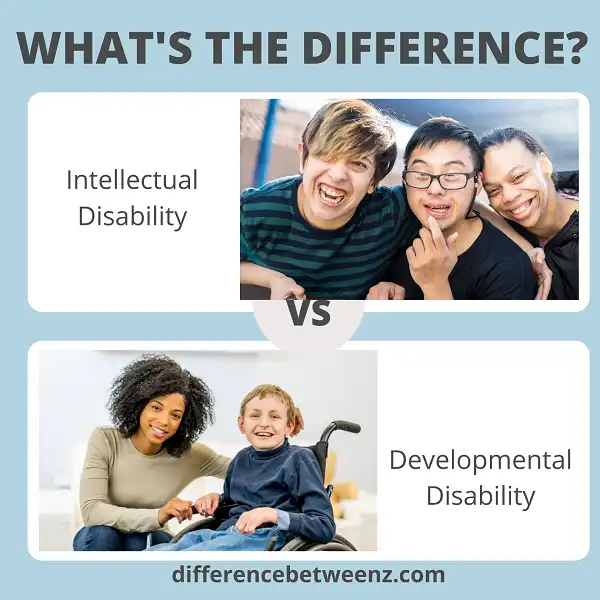Do you ever wonder what the difference between an intellectual disability and a developmental disorder is? It’s often tricky trying to distinguish these two diagnoses, but understanding the basic differences between them can help you understand how they affect not only those diagnosed with either of them but also their families. This blog post focuses on clarifying the main distinctions between intellectual disabilities and developmental disorders so that you can have a better understanding of who is affected by each one. So keep reading for more insight into why it’s important to understand the difference between these two conditions!
What is Intellectual Disability?
Intellectual Disability is a neurological condition defined by reduced mental ability and impaired development. Individuals with Intellectual disabilities have difficulty processing, remembering, understanding, or expressing information, making it difficult to participate in activities such as reading, writing, or problem-solving.
Intellectual Disability can range in severity from mild to profound and can cause significant limitations in a person’s ability to complete daily tasks, work or engage in social activities. Treatment for Intellectual Disabilities includes physical, behavior management, occupational and speech therapies, depending on the individual’s needs. Despite some challenges associated with Intellectual Disability, those affected can still live happy lives with proper support from peers and loved ones.
What is Developmental Disability?
Developmental Disability (DD) is a term used to describe permanent disabilities that can affect all areas of life, including physical, cognitive, communication, social, and/or behavioral functioning. Developmental disabilities can begin before birth or abruptly after birth due to a traumatic event. Developmental disabilities are caused by many different factors, with genetics playing an important role in some cases.
Developmental disabilities can vary significantly from individual to individual and the severity of disability can also range greatly. Unfortunately, developmental disabilities cannot be cured and those who are affected must develop coping mechanisms to adapt. Early diagnosis, intervention, and support are essential for helping individuals gain independence and lead fulfilling lives.
Difference between Intellectual Disability and Developmental Disability
Intellectual disability (ID) and developmental disability (DD) are two distinct categories in the world of special needs.
- Intellectual disability affects a person’s ability to learn, think, reason, and remember information. It is caused by an abnormality in brain development and typically has its onset before the age of 18.
- Developmental disability, on the other hand, involves significant impairments to intellectual functioning or behavior that limit participation in everyday activities.
- Intellectual disabilities may be accompanied by physical and/or medical issues, such as vision or hearing loss. Developmental disabilities can involve motor-skill problems (such as cerebral palsy) or behavioral issues (such as autism spectrum disorder).
While both are lifelong conditions that require considerable help from family and community support, they are still not interchangeable terms; understanding the difference can make all the difference when finding proper care for those who need it.
Conclusion
Intellectual Disability (ID) and Developmental Disability (DD) are two separate classifications under the Diagnostic and Statistical Manual of Mental Disorders 5th edition. They share some similarities, but there are key differences between the two. ID is characterized by impaired intellectual functioning and adaptive behavior that starts before the age of 18, while DD includes a wide range of impairments in physical, learning, communication, and social, or behavioral skills that start during the developmental period. Because of these differences, individuals with ID may require more support in adapting to their environment than those with DD. If you or someone you know has been diagnosed with either condition, it’s important to understand the difference so you can get the appropriate level of care and support.


